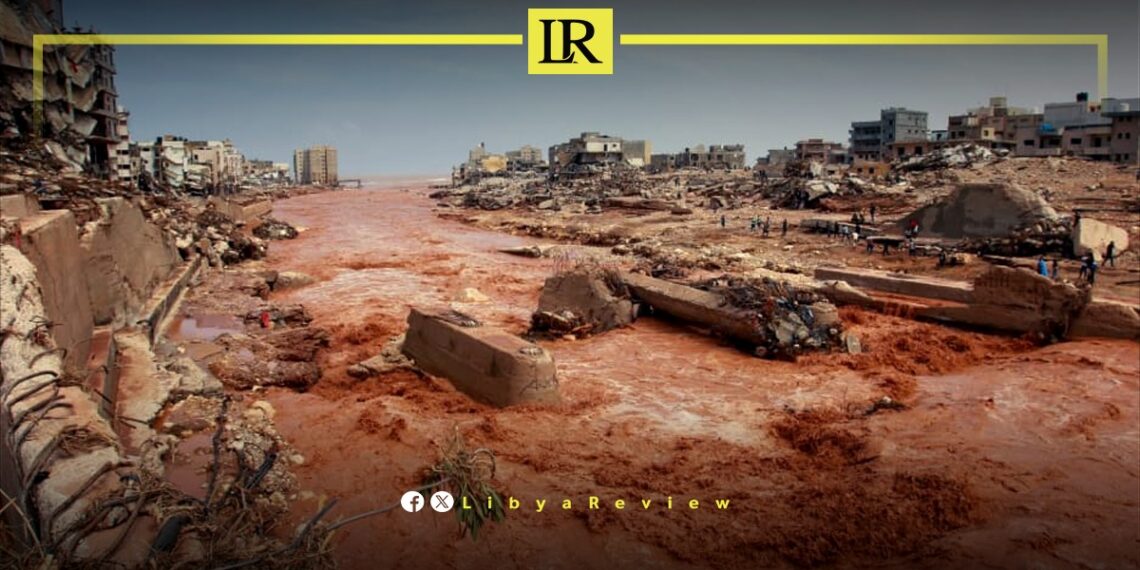A technical team from the French construction giant Vinci, specialising in dam construction, conducted a field study along the Derna Valley.
The study is part of a proposal to build new dams according to a plan set forth by the Libyan Reconstruction and Development Fund.
The Fund stated that this initiative reflects the interest of its General Manager, Belkacem Khalifa, in conducting in-depth technical studies of the valley. The goal is to arrive at the best technical decision for the construction of new dams.
The statement also mentioned that in recent months, a large number of international companies have carried out similar studies and submitted their findings to the Fund. The aim is to identify the best scientific results and technical proposals to implement effective dams that address climatic and environmental changes.
On 10 September 2023, a devastating storm swept through several eastern regions of Libya, notably the cities of Derna, Benghazi, Al-Bayda, Al-Marj, and Sousse. This resulted in significant destruction, and led to the loss of thousands of lives, injuries, and missing individuals.
The preliminary court in Derna began the trial of 16 Libyan officials, being held accountable for the destructive floods resulting from storm Daniel that struck the city.
Libya’s Public Prosecution decided to file criminal charges against the officials regarding the Derna flood incident, including the head of the Derna Reconstruction Fund, and a member of the financial committee responsible for its reconstruction plan.
In September, the Prosecution ordered the detention of four other officials in connection with the collapse of the Derna dam, for job performance shortcomings.
The Prosecution stated in its statement that the four officials include members of the Derna Municipal Council, the Director of the city’s reconstruction projects office, and the Head of the technical committee responsible for implementing its reconstruction plan.
A recent report by the United Nations Development Programme (UNDP) has shed light on the inadequate preparedness of residents in Derna, and neighbouring eastern Libyan cities for the devastating flood that struck the area. The report points to conflicting signals received by residents, which left them unprepared for the impending deluge.
In the period leading up to the catastrophic flood, residents of Derna and adjacent regions were subjected to mixed messages that sowed confusion. A curfew was imposed in Derna and other cities, with many residents receiving text messages advising them to stay indoors.
Simultaneously, other official statements urged the evacuation of coastal areas due to the threat of a sea surge. This inconsistency left residents without clear guidance, exposing them to the full force of the disaster.
The report emphasises the critical role of effective early warning systems in reducing disaster risks, and protecting vulnerable communities from severe weather phenomena. A robust system includes several key elements: providing accurate and timely alerts to residents, government authorities, and stakeholders; offering unified, clear, and actionable information through multiple communication channels such as mobile phone alerts, sirens, radio broadcasts, television channels, and social media; and ensuring widespread reach and accessibility, including for those with limited technology access.


